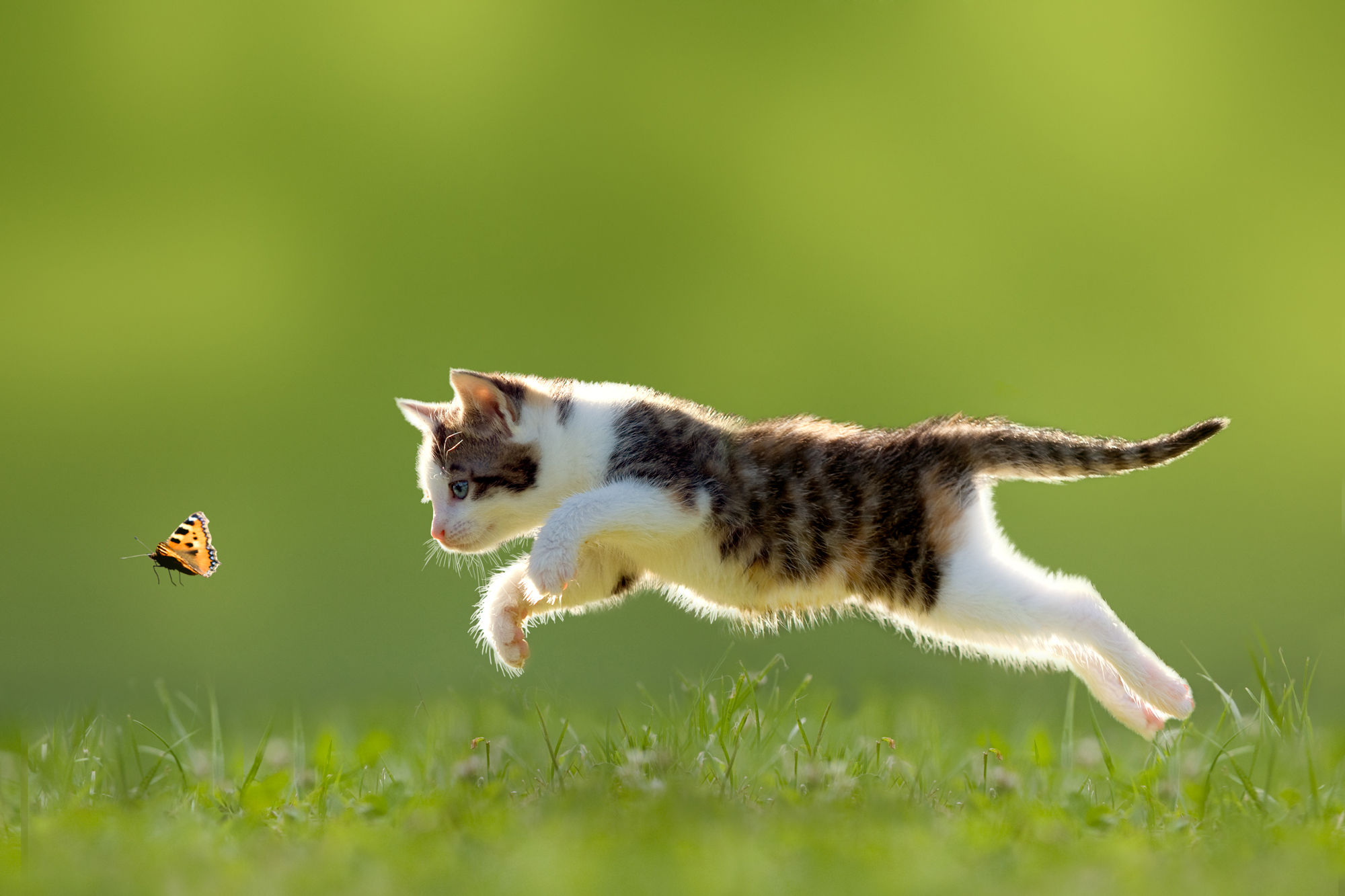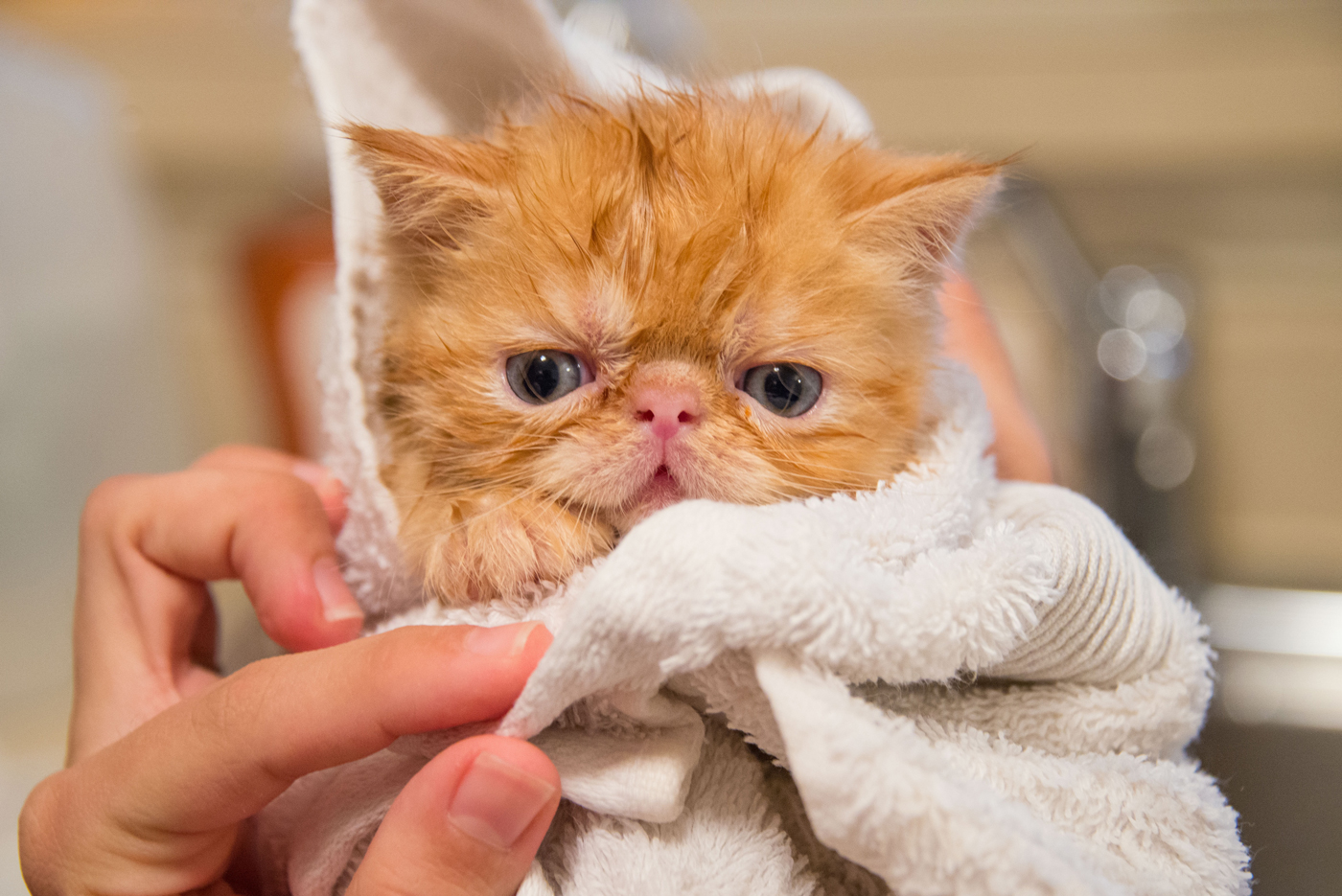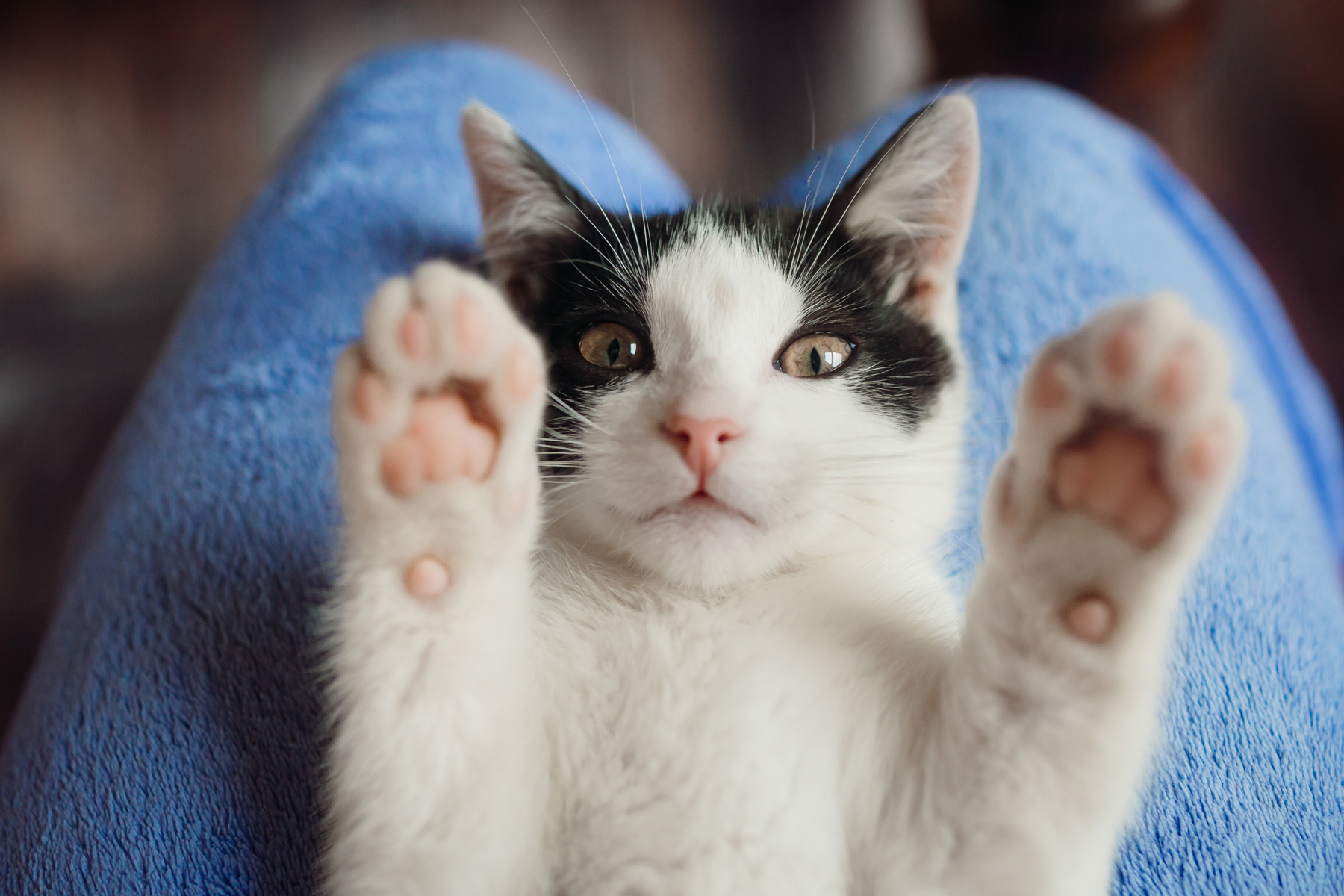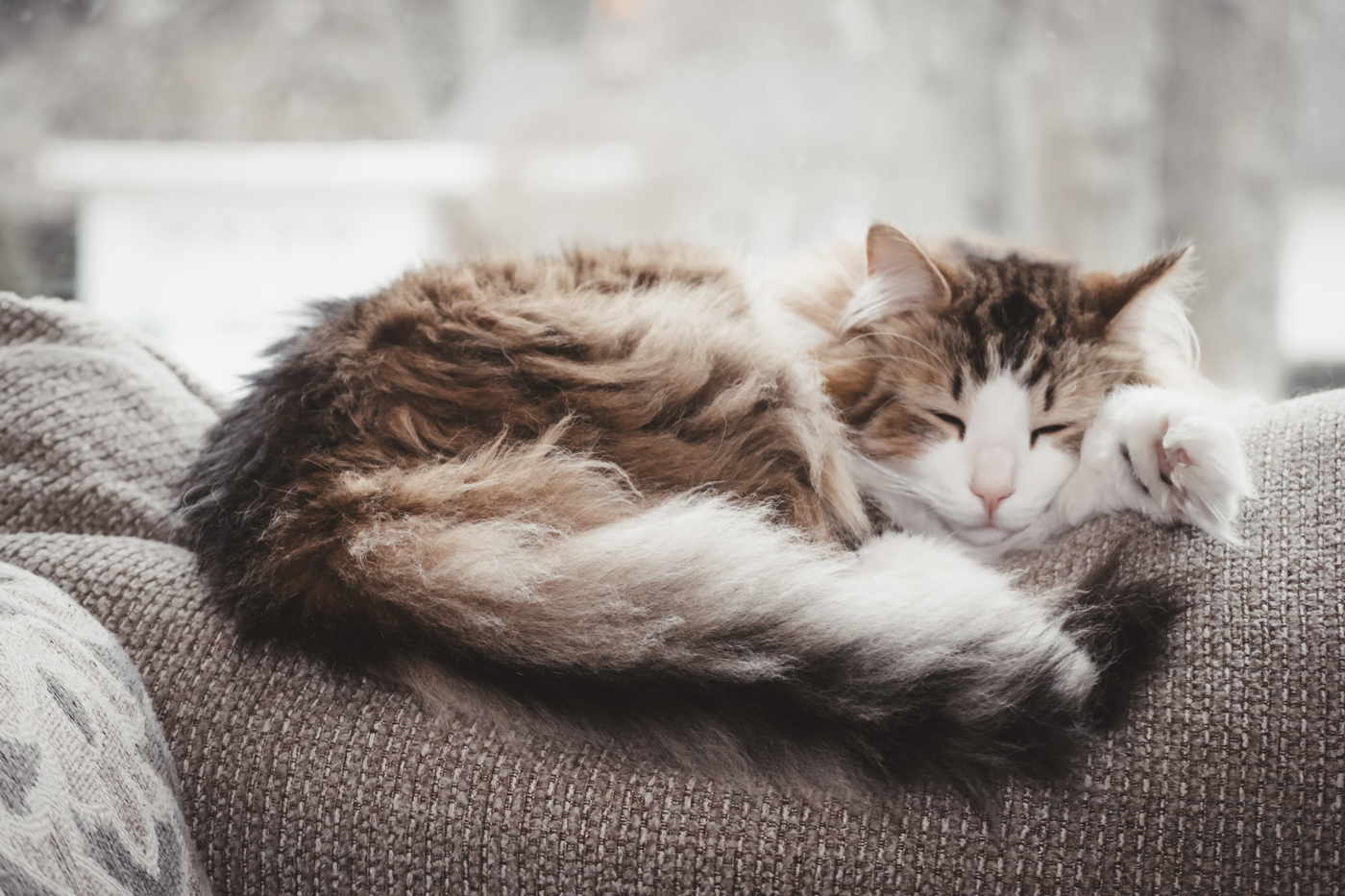
Cat life stages
29th June, 2021
Just got a new kitten, and wondering how your purrfect pet will change over the coming years?
Your cat’s life stages roughly mirror those of humans – though sadly, they race through them at a faster rate. An average lifespan is around 13-14 years, and 20 is an excellent age for a cat.
So how should you care for your kitty throughout its life? And how can older cat insurance help? Read on for our guide!
Kitten: 0-6 months
A mischievous moggy is a delight to behold at this age! Your cute bundle of fur will be jumping, climbing, scratching, and getting into all sorts of scrapes.
Get your vet to check it for any birth defects and give it the first set of jabs. Unless you want a litter of little kitties, get it spayed or neutered from about four months of age.
Enjoy the kitten stage, because it doesn’t last long. Fortunately, your feline friend will remain fabulous throughout the next stages, too.

Junior: 7 months-2 years
Your junior cat is like a human teenager or young adult. You’re likely to let it roam freely, giving it a chance to claim its territory. Be warned – it could well get into scraps with other neighbourhood cats!
After all that exploring, your feline will probably turn up ravenous at tea time. But take care not to overfeed it: cats which put on weight now can develop health problems later on.
Instead, give it a healthy, balanced diet, and ask your vet for advice if you’re concerned that it’s piling on the pounds.
Adult: 3-6 years
Many owners consider these years to be the prime of their pet’s life. Their cats are young enough to still enjoy prowling around the neighbourhood, but wise enough to keep out of trouble – most of the time!
Your puss’s personality will be pretty settled by now. Whether yours is sociable, inquisitive, aloof, shy, snuggly, or an unpredictable mixture, it deserves the very best care from you.
Keep up with regular vet checks, vaccination boosters, worming and tick control, and dental cleaning. All these factors will help your moggy stay healthy as it ages.
Mature: 7-10 years
Hard to believe that just a few years have passed since your kitten first opened those wide, startled eyes! Your moggy is middle-aged now, though many still love a good play session. While it may have lost a little of its cuteness, it makes up for it in contented purring.
Health problems can start to creep in around now, so look out for warning signs. If you spot your cat losing weight, looking lethargic, eating and drinking more or less than usual, or suffering vomiting, diarrhoea or constipation, take it to the vet.
It’s a good idea to get senior cat insurance in place before your vet bills start to rise. Petwise provides policies for cats aged over seven, with seven cover levels to suit your feline’s needs.

Senior: 11-14 years
If your senior cat was a human, it would be looking to retire around now. And, just as with people, these can be golden years for felines – as long as their health holds.
Your cat will be less eager to hunt these days, and keener on dozing and dreaming on a cushion or your lap. Some owners swear by getting another kitten to rejuvenate their older mog, but many elderly pets are irritated by the antics of a younger cat. They’re perfectly content to snooze!
Do make sure your cat gets some physical exercise though, and give it puzzle toys to keep it mentally alert, too. A good regime now will really prove its worth in the years to come.
Healthwise, learn to recognise the symptoms of the main conditions that strike senior cats: chronic kidney disease, thyroid problems, diabetes, arthritis and cancer. And don’t just dismiss symptoms as being an inevitable part of the ageing process: some are treatable or manageable.
With pet insurance for older cats from Petwise, you have access to a 24-Hour Vet Helpline for all your queries and concerns.
Super senior: 15+
Cats need extra care in their twilight years. And this period can last a long time: some cats can reach 25 or even beyond!
So what should you look out for? Let’s start with its coat. As your moggy gets stiffer, it finds it harder to groom. So its once sleek fur can get matted and dull, and skin problems might crop up, too.
Elderly cats can develop a form of senile dementia. This is often confused with other conditions, so do get yours checked out by your vet.
Super seniors also have a tendency to get dehydrated and constipated, and dental problems might make it harder for them to chew. Your vet might advise you to give them a special diet.
And look out for signs of more serious illnesses. Cats are very good at masking pain, so you need to be alert to tiny changes. Red eyes, fever, listlessness, changes in appetite – anything out of the ordinary warrants a trip to the vet. In the chance that your cat develops a fever, check out our how to guide on caring for a cat with a fever.
With pet insurance for senior cats from Petwise, you’re covered for vets’ fees up to £10,000 per year, depending on the policy level you choose.
If your cat’s condition can’t be cured and you know it’s in pain, you may have to make the sad decision to put it to sleep. Or your cat may naturally slip peacefully away.
Either way, it’s a huge loss for you and your family – but you can console yourself that you gave your beloved moggy the very best life at every stage.

Get a quote from Petwise today
Owning a cat is full of joy – and sometimes worry. So at Petwise, we want to make it easy for you to care for your cat in its later years.
Our pet insurance for older cats covers vet fees, dental treatment, loss by theft or straying and much more. We offer a friendly UK-based team, a 24-Hour Vet Helpline, and a bereavement helpline, too. There’s no upper age limit for taking out a new policy.
Contact us today for a quote.
Policy benefits, features and discounts offered may very between insurance schemes or cover selected and are subject to underwriting criteria. Information contained within this article is accurate at the time of publishing but may be subject to change.